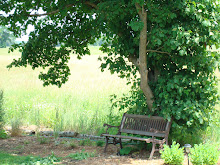It is that time of year when everyone is listing their resolutions. One of the more fascinating is the resolve to read more or to read a certain number of books. Why fascinating? Because reading is arguably one of the solitary vices. And what is a solitary vice? Don’t blush if you do know, but Victorians used the term as a euphemism for masturbation. Now I have your interest.
What does the act of reading have in common with the act of masturbation? According to Mikita Brottman, a psychotherapist and a literature professor at the Maryland Institute College of Art, they have quite a bit in common. So much so, that Brottman titled a book called the ‘The Solitary Vice: Against Reading” (Counterpoint, Berkeley, 2008).
As Brottman notes, masturbating and reading share many traits. “They are often carried out alone, often in bed, before you fall asleep. Both are enjoyed best at leisure, since they both absorb your complete attention. Neither can be rushed and both involve acts of fantasy and imagination. Both can be so exciting that some people become addicted to them, and, like all addictions, they can be difficult to kick. Both may become lifelong practices, picked up in early childhood and continuing well into old age. Both are habits some people discover by themselves and others are introduced to it, usually at school. Both are encouraged by solitude, especially if you’re sent to bed early.”
And the similarities don’t end there. Both reading and masturbation have a checkered history. Prior to the twentieth century, masturbation was seen as a terrible habit, which if not stopped could lead to a wide range of bad things, from blindness to problems later in life. Indeed the Bible tells us of the Sin of Onan, where God slew Onan for spilling his seed.
Today, masturbation is viewed more positively, a way of learning about your own body and sexual responses, a way to reduce physical and emotional tension. As Woody Allen once said, “Don’t knock masturbation, it’s sex with someone I love.” Now there are books about how to masturbate without guilt like Edward L. Rowan’s ‘The Joy of Self-Pleasuring: Why Feel Guilty About Feeling Good:, Walter O BOcking and Eli Coleman’s Masturbation as a Means of Achieving Sexual Health, and Betty Dodson’s Sex for One: The Joy of Self-Loving. Indeed, sexologist Masters and Johnson suggest we’re not loving ourselves enough, letting guilt and fear stop us from getting know our own bodies in a way that’s essential to our sexual well-being.
Reading has had the same tortured road to acceptability. Brottman reminds us that books were once believed to have hidden powers, that they could cast a spell on you. Plato banned poets from his ideal Republic after being infect by the fears of Socrates, who, in his dialogues, made the case that books are an impediment to real learning. At best they were aids to memory, but limited because they weren’t interactive. In the 19th century, novel reading was considered an especially inappropriate past-time for well-bred young girls. Philosopher Jeremy Bentham denounced all poetry as “misrepresentation”. Notes Brottman, “When for the first time in history, almost the entire population could read (to some degree at least), books began to be attacked for taking up time that would be better spent working.”
In 1891, William Morris claimed that reading was no more than a celebration of bourgeois individualism, “a private experience of one individual personally engaging with the mind of another, an exchange so intimate and restricted that, once caught up in a novel, the reader might become detached from other people.”
How we have changed as a culture. In the last twenty years reading and literacy have become among the ideals of a good life. We now have community readings at the city and country level. Canada reads, Hamilton reads. If once a solitary vice, reading has now become a public orgy, with our collective imaginations devouring the pages of a common book. Even Ms Brottman confesses the first chapter of her book is pure satire, that she in fact loves books, loves reading.
So while reading and masturbation both had humble beginnings, reading arguably has become more popular, more socially acceptable. The whole community becomes involved. People make New Year’s resolutions to read a given number of books. One wonders though if it is simply the canary in the coal mine, a leading indicator of future trends. Will the day come when people declare their New Year’s resolutions for masturbation?
8 years ago

1 comment:
witty, clever, intelligent, and very stimulating...I will never be able to pick up a book again,hold it in my hands, open the pages, and flutter my eyelids across the printed word, without connecting the activity to other "solitary vices"
Post a Comment